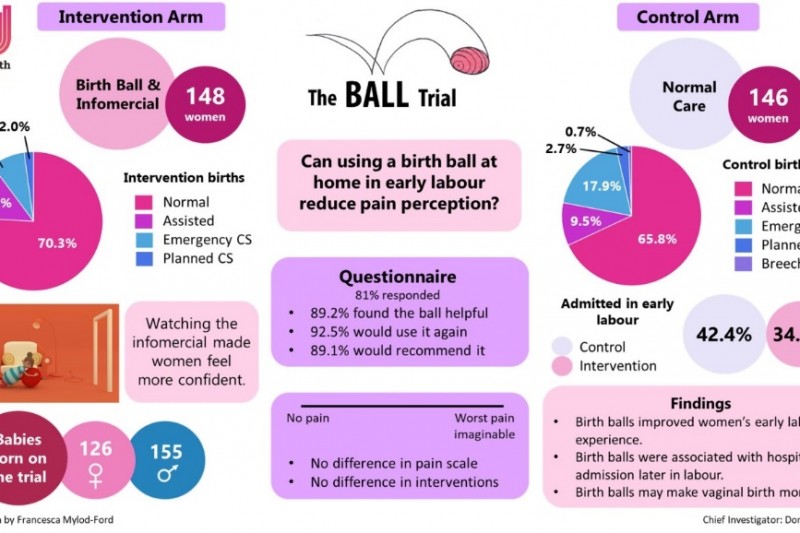In June 2019, I was lucky enough to present the first findings from the Ball Assisted Latent Labour (BALL) Trial at the University of Central Lancashire Normal Labour and Birth Research conference in the Lake District. The train journey to the conference was stuffy and crowded with grumpy passengers because the seat reservation system had packed up. My luck had held to gain a seat and functional WiFi. Whil twenty cows sashayed onto the line and brought the train to a stop, I was engrossed in the box-plot, which I had conjured out of the SPSS program (a software package used for statistical analysis) and a statistical p result of 0.00.
Surrounded as I was by indignant rumblings, I assumed I had it wrong again (a default position for a doctorate student). I eventually made it to the conference venue and tentatively coughed at the shoulder of Professor Alison Macfarlane whilst she was stacking books. For the uninitiated, this was the equivalent of asking Mozart to teach me to read music. ‘Oh, I expect you’ve got a high level of statistical significance there’, Alison commented kindly, as I was bathed in light, the angels chorused and my knees turned to jelly.
The significantly increased confidence my participants had reported after watching a bespoke animated infomercial called 'Having A Ball in Early Labour' was conveyed to a sympathetic and kindly audience before I returned home in a glow of achievement and Pinot Grigio. The rest of 2019 was a blur of a sore backside from sitting at the laptop and 90 minutes’ defence of my thesis, which would make appearing on Mastermind a teddy bears’ picnic in comparison.
In her role as Midwifery Advisor to the World Health Organization Fran McConville urged midwives to be the one change they would like to see happen in 2020, as the Year of the Midwife. I believe midwifery-led research powers improvements in care and outcomes when it is grounded in families’ lives, experiences and concerns, rather than how scarce resources can be distributed. Women are less concerned with the elimination of labour pain, but terrified of separation from their loved ones, a loss of control amongst strangers and undergoing unpleasant and risky interventions. And I don’t blame them. I want my research to give women the tools to overcome their fears, optimise their own powers and reduce interventions. Bring it on. And pass the Pinot Grigio.


